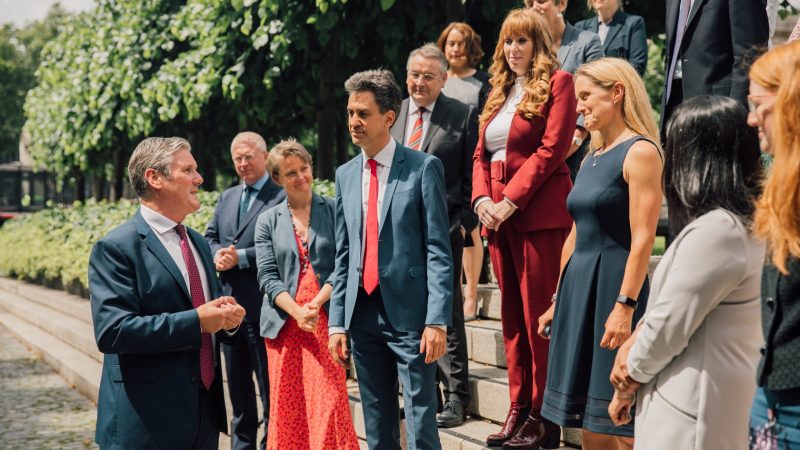
Labour’s future candidates programme has become a source of controversy within the party today, after it was reported that hundreds of people who may never have been members are being encouraged to stand as candidates. A Labour source told The Times that Keir Starmer “wants to open the party up”, making it “more representative and less obsessed with internal issues”, while a Labour insider cited concerns over the “calibre” of Labour candidates at the 2019 election and the need to “get pro-Starmer people” in parliament as a key driver.
The programme was first launched by Ed Miliband in 2011. Jon Trickett MP said at the time: “We’ve got to convince people that if a democracy is to truly function, then people like us can become members of parliament.” He had been asked by Miliband to find more working-class candidates. Similarly, the programme was pitched this time as a way of creating “a trained cohort of individuals who reflect the full diversity of our society”.
But the aspect of the programme troubling some is that there is “no limit on length of membership” for applicants. This appears to undermine Labour’s rulebook, which states that candidates should be members of the party for at least a year before standing for office (although there are sometimes exemptions made, such as for Kim Leadbeater). LabourList can clarify, however, that the one-year rule will continue to apply to selections. It is being waived for the programme because the party does not know when the next general election will be – likely not in the next 12 months – and participation in the course does not guarantee selection as a candidate anyway.
A Labour spokesperson told LabourList: “The future candidates programme is an important part of our commitment to standing a diverse pool of candidates across the country in the next general election. To achieve that, and as we don’t know when the next election will be, we have opened up participation of the course to include any member of the party. The normal requirements to stand as a candidate remain.”
There will be frustration over the source quote in The Times criticising the 2019 intake of Labour MPs, however, with many of the newcomers having come up through affiliated trade unions. A Unite the Union spokesperson reacted to the news by describing the Labour Party as “packed with talented people who have dedicated themselves to their party, their union or public service” and saying the remark about the 2019 candidates was “disrespectful snobbery towards people who give their all for Labour”.
More broadly, unions will not be happy if the selection chances of their members are being diminished in favour of people who have given little money to the party and little time to the labour movement. This feeling is likely to be shared by leadership-supportive members of Labour’s national executive committee, too, as many will have connections to aspiring MPs or want to be MPs themselves.
The belief that there is a lack of talent in the Parliamentary Labour Party is not limited to any one faction, and it is not only Starmer supporters who want to see selections improved. But the concern on the Labour left is that the goal here is to bring in leadership loyalists with minimal commitment to Labour and minimal experience, which wouldn’t address the quality problem. (Momentum has sent out an email today to its own members encouraging them to apply to the programme before the deadline on Friday, 13th August, 5pm.)
One pro-leadership source suggested to LabourList that a better solution would be avoiding obvious stitch-ups, like the one seen in Hartlepool, as this could encourage people to stand. There is clearly something going wrong when the quality for councillor applications is generally much higher than the quality of MP applications, as is apparently the case.
The consequence of allowing very new members of the party to join Labour’s future candidates programme is not that the normal requirements to stand are being scrapped. But opening up the scheme in this way does mean applicants are more likely to be loyal to the leadership, which makes it an effort to shape the parliamentary party in Starmer’s favour. This is bound to attract criticism from his detractors. The question is whether the programme will genuinely improve the quality of Labour’s candidates, rather than just the standing of a faction.



More from LabourList
Humza Yousaf woes deepen as Labour plans no-confidence vote in government
‘History and poll leads suggest Labour can be bolder, even if it costs some votes’
Labour warned ‘ethical foreign policy’ inevitably sparks charge of ‘hypocrisy’